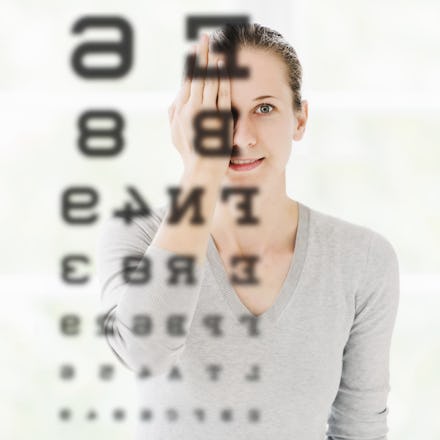How Gene Therapy Could Finally Bring Us a Cure for Blindness

Thanks to gene therapy, there may be hope for correcting one type of blindness — and it could even buff up your brain in the process.
Leber congenital amaurosis is a hereditary degenerative disease that affects the retina, potentially causing complete blindness at a young age. In 2007, researchers at the University of Pennsylvania, Philadelphia, found that, by injecting a subject's retina with healthy copies of a mutated gene, they were able to not only repair the eye, but also strengthen the neural pathways of the brain. Meaning: As the eye gets better, the neurons associated with it get better at relaying information to the brain.
That first subject in 2007 was 18, an age where the body is still so elastic that bouncing back from damage is much easier. But eight years later, Manzar Ashtari, the lead researcher and author of the corresponding paper from the University of Pennsylvania's Perelman School of Medicine, found that even subjects as old as 45 saw improvements in their vision using this gene therapy.
"The patients had received the gene therapy in just one eye, their worse seeing eye, and though we imaged their brains only about two years later, on average, we saw big differences between the side of the brain connected to the treated region of the injected eye and the side connected to the untreated eye," Ashtari said, according to a Penn Medicine release about the research.
But what's so cool about this therapy is how it progresses in the body. Imagine what it would be like to go from seeing grey blobs to seeing vivid colors and sharp shapes. As the subjects regained sight and processed information more efficiently — in some cases, going from struggling to see a waving hand in front of their face to reading lines on a sight chart, or (allegedly) moving effortlessly through a maze — the brain needed to reassess how it interprets the world.
"That was what we expected to see — the more the treated eye sees the world and interacts with the environment the more it stimulates the pathway and the stronger the connecting pathway becomes between the retina and the brain," Ashtari said, according to the news release.
What's more, even though LCA is a hereditary disease and starts damaging its host's sight early on, most of the study's subjects were at least 20, meaning the therapy didn't need to be engaged in the early years of childhood to work.
This research could, effectively, reverse blindness in sufferers of LCA. While it doesn't come close to fixing every type of blindness, the ability to replace bad genes with good ones shows a lot of medical promise — and could put an end to all hereditary blindness in the future.